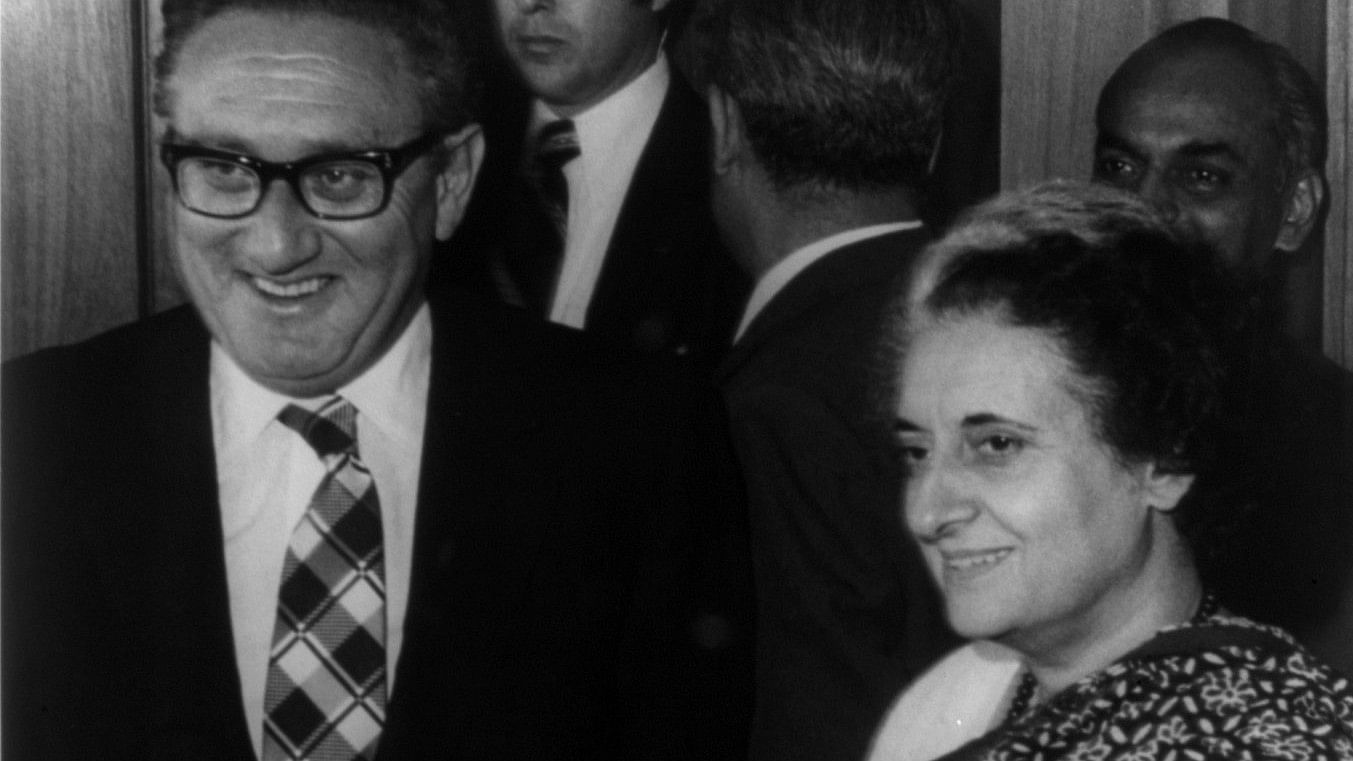
Henry Kissinger (left) and Indira Gandhi (right).
Credit: X/@Paul_Koshy
In a significant historical revelation, the US Department of State declassified taped conversations in July 2005 between former US President Richard Nixon and Secretary of State Henry Kissinger, which took place shortly before the India-Pakistan war in 1971, ultimately leading to the creation of Bangladesh.
Nixon and Kissinger are heard engaged in a heated conversation about former Prime Minister Indira Gandhi, immediately following a meeting with her. The exchange includes Nixon referring to her as an "old witch," while Kissinger calls her a 'b**ch' and makes disparaging comments about the Indian people, labelling them as "b***ards".
"Indians are b***ards anyway", he can be heard saying on the tapes which also shed light on Nixon's derogatory remarks concerning Indian women, portraying them as "most sexless" and "pathetic."
Upon the public revelation of these remarks, Kissinger expressed regret for his words and conveyed his respect for the ex-PM. In an interview with NDTV, he attempted to contextualize the profanity, citing the cold war atmosphere prevailing 35 years prior. He referenced a secret visit to China, which occurred before President Nixon's historic trip, and highlighted India's alignment with the Soviet Union during that period.
Despite Kissinger's efforts to do damage control, the derogatory statements captured in the tapes remained a lasting stain on his legacy, particularly due to his perceived indifference to human rights abuses in what was then East Pakistan.
Henry Kissinger, a towering figure in the realms of diplomacy and realpolitik, passed away at the age of 100.
In an interview with The Atlantic, he had emphasized the importance of human rights as an "essential goal" of American policy, alongside national security.
He acknowledged that while there are situations where no conflict exists between these two objectives, there are instances where they may come into conflict. In such cases, the president is tasked with making a series of judgments, considering factors such as the extent of the conflict, available resources for resolution, the anticipated impact of actions, and the willingness of the American public to sustain the effort.
(Disclaimer: This article has been written by a generative AI tool and has been edited and reviewed by the DH Web Desk.)